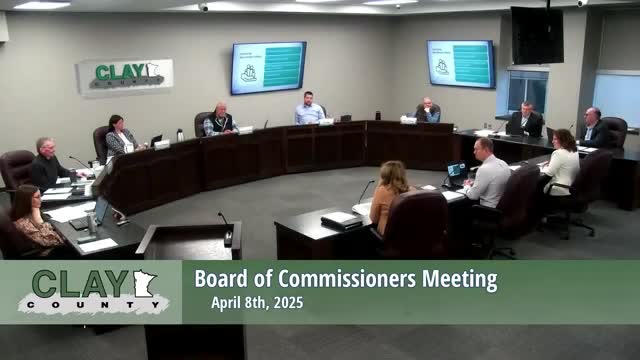Clay County social services reports growth in disability program demand and staffing changes
April 08, 2025 | Clay County, Minnesota
Thanks to Scribe from Workplace AI , all articles about Minnesota are free for you to enjoy throughout 2025!

This article was created by AI using a video recording of the meeting. It summarizes the key points discussed, but for full details and context, please refer to the video of the full meeting. Link to Full Meeting
The meeting began with a discussion on the restructuring of programs aimed at enhancing support for children, youth, and families. Officials noted that many staff members from DHS would be transitioning to DCYF, which is expected to maintain strong relationships at the state level. However, challenges were acknowledged, including potential hiccups during the transition.
Following this, updates on disability services were presented. The county's intake services for adults with disabilities were highlighted, showing a slight decrease in intakes from 1,233 in 2023 to 1,201 in 2024. Staff changes were also noted, with Bria Krause stepping into a key role and providing backup support as needed.
The discussion then moved to the Special Needs Basic Care (SNBC) program, which has seen significant growth due to changes in how UCare assigns members. The county reported an average of 486 members in 2024, a notable increase from previous years. To accommodate this growth, a new staff member was hired to support the increased caseload.
The MN Choices program was also addressed, with updates on the implementation of a new version that faced initial software issues. The program is crucial for assessing eligibility for various services, and it was confirmed that annual reassessments are mandatory for those receiving disability waivers.
A significant concern raised during the meeting was regarding the Community First Services and Supports (CFSS) program, which replaced the Personal Care Assistant (PCA) program. The transition has been challenging, with a shortage of consultation service providers leading to delays in service access for many individuals. Only a third of those approved for CFSS have been able to connect with necessary consultation services, causing frustration among officials and constituents alike.
The meeting concluded with a report on the staffing and operational challenges faced by the disability services unit, including the need for case managers to work intensively with clients to authorize services promptly. The board acknowledged the ongoing efforts to improve service delivery and the importance of addressing the workforce issues impacting service availability.
Overall, the meeting underscored the county's commitment to enhancing support for vulnerable populations while navigating the complexities of program transitions and service delivery challenges. Further discussions and follow-up actions are anticipated as the county continues to adapt to these changes.
Converted from Clay County MN Board of Commissioners 4/8/25 meeting on April 08, 2025
Link to Full Meeting
Comments
View full meeting
This article is based on a recent meeting—watch the full video and explore the complete transcript for deeper insights into the discussion.
View full meeting